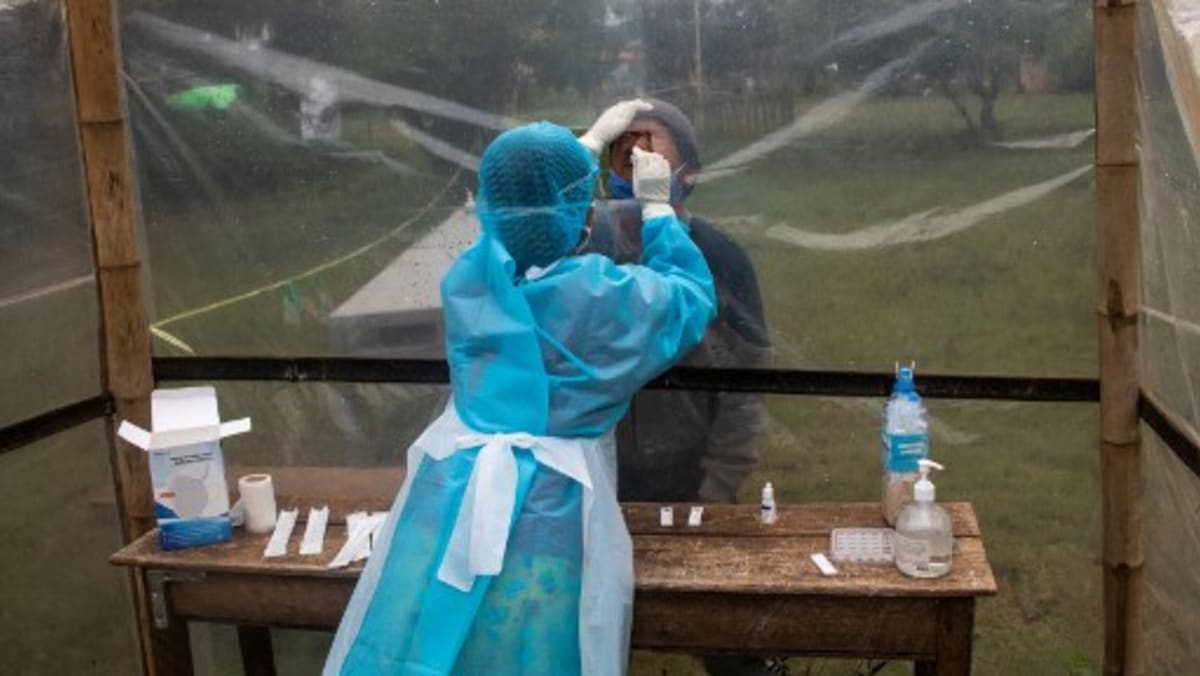CANBERRA: It seems like not a day goes by without learning that someone in our inner circle of family, friends and colleagues has COVID-19. When we ask how unwell our acquaintance is, the responses vary from “they’re really ill” to “you wouldn’t even know they had it”.
This is in line with studies that report moderate to severe illness in a minority of people (usually older with other risk factors) and that up to one in three positive people exhibits no symptoms.
Given the ubiquitous presence of this highly infectious coronavirus in our community and the high rate of asymptomatic illness, those who have not been diagnosed with COVID-19 might wonder: “How would I know if I had been infected?” and “Does it matter if I have?”
HOW IS COVID-19 DIAGNOSED?
Most people know they’ve had COVID-19 because they had a fever or upper respiratory tract symptoms and/or were exposed to an infected person and had a swab test (PCR or rapid antigen) that detected the COVID-19 virus (SARS-CoV-2) in the upper airway. People with consistent symptoms or high-risk exposures who were not able to access PCR tests or ART to confirm their diagnosis could have instead presumed themselves positive and quarantined.
It is possible to diagnose past infections in those who never tested positive. A blood test can look for SARS-CoV-2 antibodies (also known as immunoglobulins).
Related:
Commentary: TraceTogether and SafeEntry shouldn’t be needed for entry into malls and low-risk areas
Commentary: New Zealand's COVID-19 infections are likely much higher than reported
When we are infected with SARS-CoV-2, our immune system launches a precision counter strike by producing antibodies against viral targets, specifically the Spike (S) and Nucleocapsid (N) proteins. COVID-19 vaccines induce a similar immune response against the S protein only. The S antibody “neutralises” the invader by preventing the virus from attaching to human cells.
These antibodies can be detected within one to three weeks after infection and persist for at least six months – potentially much longer. A blood test that shows antibodies to S and N proteins indicates that someone had been previously infected. Detection of antibodies to the S protein only indicates vaccination (but not infection).
THE PROBLEM WITH ANTIBODY TESTS
Before you rush off to get a COVID-19 antibody test, there are a few notes of caution. There is still much to learn about the characteristics of the immune response to COVID-19 infection.
Not everyone mounts a detectable antibody response following infection and levels can decline to undetectable levels after several months in some people.
Because there are other circulating seasonal coronaviruses (such as those that cause the common cold), tests may also pick up antibodies to non-SARS-CoV-2 strains, leading to “false positive” results.
Commercial and public hospital pathology labs can perform SARS-CoV-2 antibody testing, but the interpretation of results should be undertaken carefully.
Symptoms can include shortness of breath, physical and mental fatigue, exercise intolerance, headaches and muscle and joint pain. However, the likelihood of developing this condition appears higher in those who suffer a heavier initial bout of COVID-19 illness. This might be linked to a higher viral load at that time.
As we enter the third year of the COVID-19 pandemic and given that up to one in three infections may be asymptomatic, it is likely that many of us have been infected without knowing it.
If you are experiencing lingering fatigue, brain fog or other symptoms that could be long COVID-19, you should talk to your GP. Otherwise, knowing our COVID-19 infection status is unlikely to be of much practical benefit. Antibody testing should be reserved for specific medical or public health indications.
Being up-to-date with COVID-19 vaccinations is still our best defence against severe illness moving forward.
Ashwin Swaminathan is a Senior Lecturer at the Australian National University. This commentary first appeared in The Conversation.







